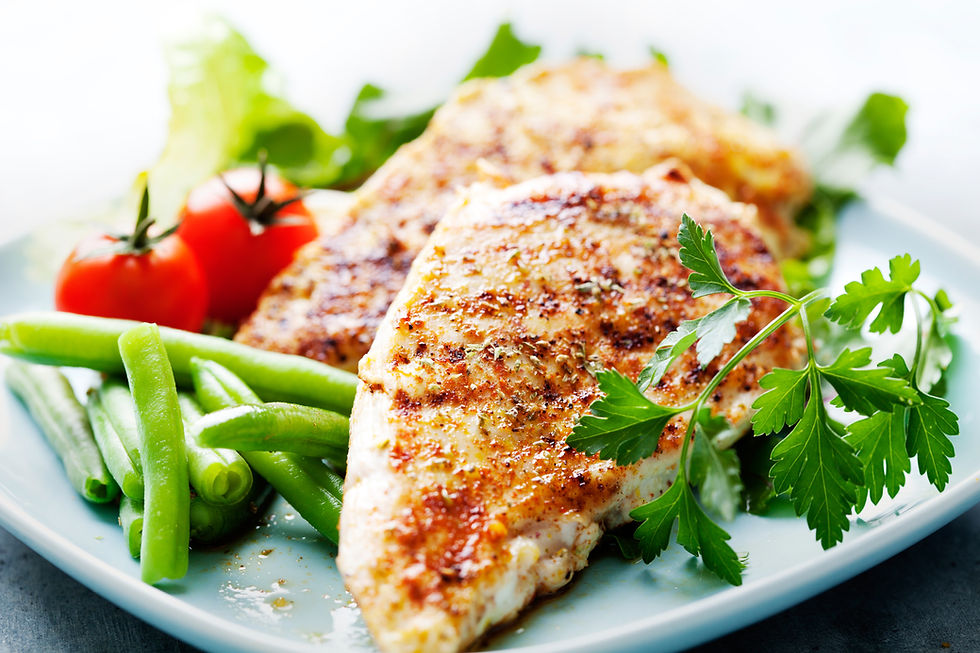High Protein Food (Part 1)
- Derrick

- May 7, 2020
- 2 min read
Updated: May 21, 2020
Why protein? Is eating more protein good for you?
Consuming proper amount of protein after an exercise will give your body the amino acid needed to increase muscle protein synthesis and decrease muscle protein breakdown. This macronutrient is responsible to build, repair and maintain tissues to keep our muscles, bones, blood, hair, and nails healthy.
Studies have shown that ingesting 20-40 grams of protein will help to maximize the body's ability to recover after exercise. (2),(3)
High protein foods include lean chicken, lean pork, fish, lean beef, tofu, beans, lentils, low-fat yogurt, milk, cheese, seeds, nuts, and eggs.
Top 10 High Protein Food List

#1: Lean Chicken Breast
In 100g of Chicken breast, you can get about 32.1g of protein.
Chicken breast is especially popular among bodybuilders. Since it has a high protein and low calorie content, it means that you can eat more of it without worrying about consuming too many calories.

#2: Tuna
In 100g of Tuna, there is about 30g of protein.
Tuna is low in calories & fat. This makes it an almost pure-protein food. It is highly recommended for people who require a quick boost of protein.
Also, tuna is a good source of omega-3 fatty acids, which helps to fight inflammation!

#3: Beef
In 100g of Beef, there is about 28g of protein.
Beef is part of the red meat family. Red meat is a term used for the meat of mammals, which contains higher amounts of iron than chicken or fish.
However, that being said, red meats have more saturated (bad) fat than chicken, fish and vegetable proteins such as beans. Saturated and trans fats can raise your blood cholesterol and make heart disease worse.

#4: Almonds
In 100g of Almonds, you can get about 21.5g of protein.
It is recommended to consume roughly a handful or a shot glass amount, which would add up to roughly 30g.
Try not to consume more than the recommended amount as almonds contain hydrocyanic acid. Over-consuming can potentially lead to breathing problems or nervous breakdown.

#5: Salmon
In 100g of Salmon, you can get about 20g of protein.
Salmon is a highly nutritious food, as it is a source of Omega-3 fats, just like Tuna. Consumption of such healthy fats helps to prevent stroke-causing blood clots and reduces inflammation.
It is also an excellent source of both vitamin D and calcium. Consumption of these nutrients can possibly aid in healthier bones and reduce the risk of osteoporosis.




Comments